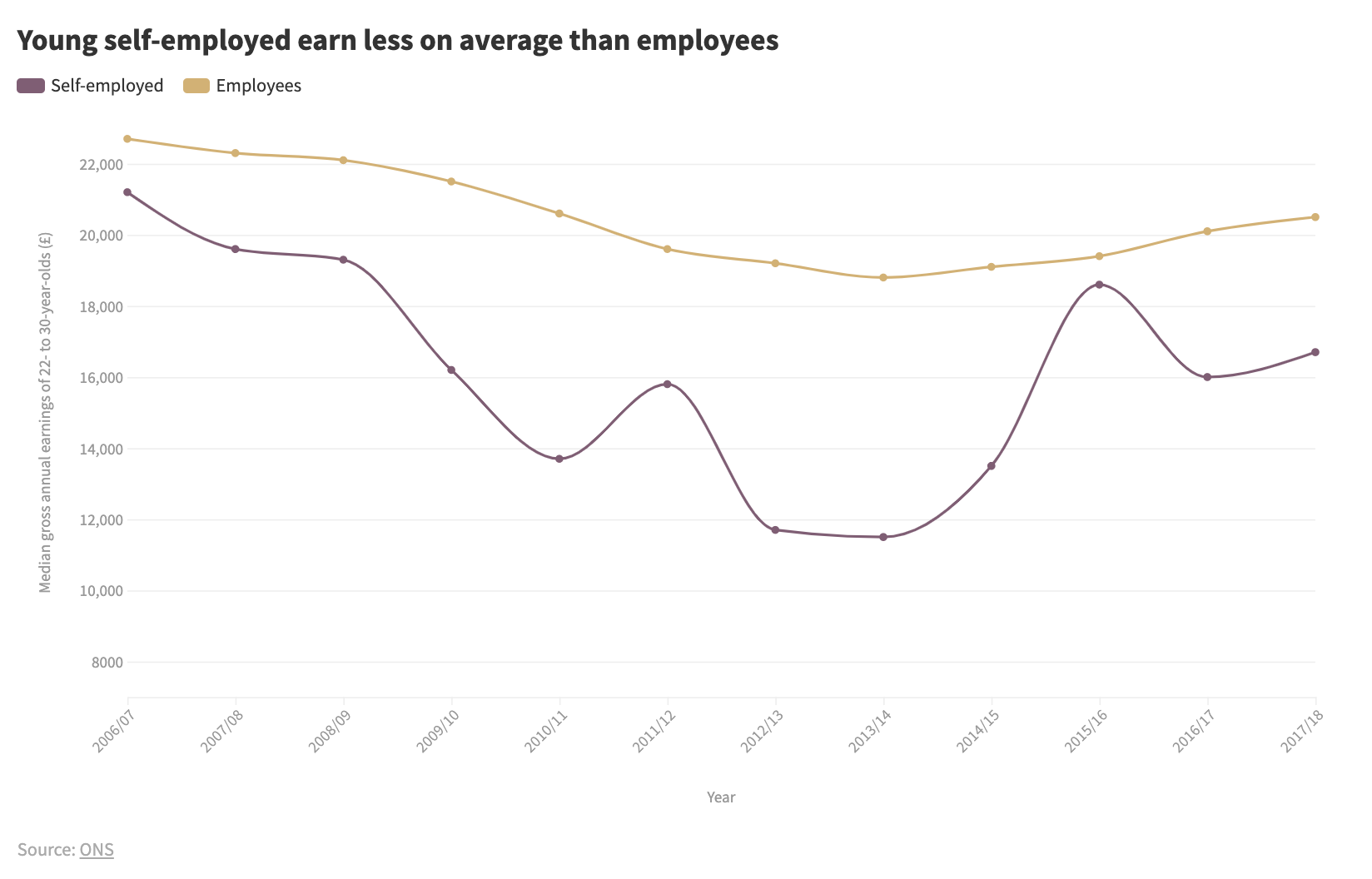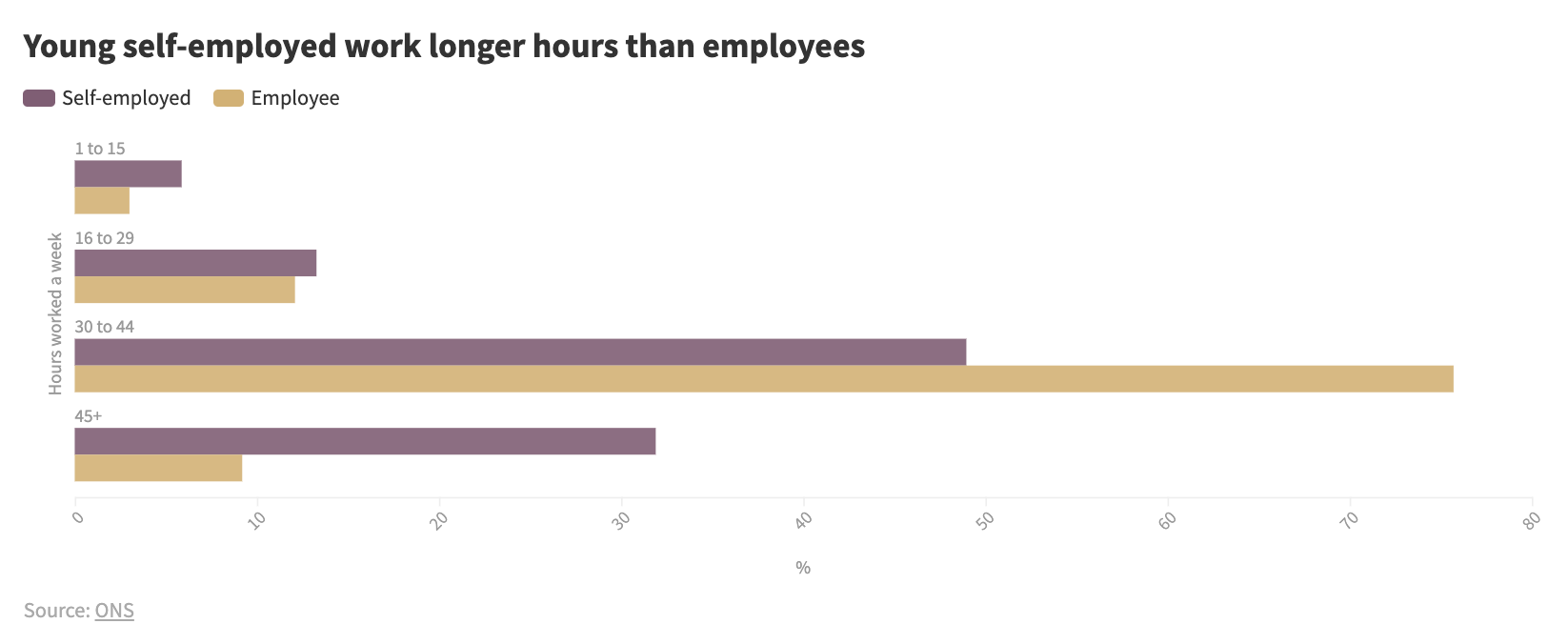

Self-employed workers aged 22 to 30 years old earn around £3,800 less per year, on average, than employees.
The number of 22 to 30 year olds in self employment has increased by a third over the last decade to over 500,000, according to a recent report released by the Office for National Statistics (ONS). Improvements in technology including cloud-based working and reliable video calls have undoubtedly increased the appeal of the flexibility and independence that comes with self-employment .
According to the report, self-employed workers can expect to earn around £3,800 less per year, on average, than employees. After adjustments for price changes over the last decade, average income remains below pre-recession levels at an estimated £16,700 per year.
Types of self-employment include entrepreneurs, gig economy workers, contractors and freelancers. Self-employed workers are not paid through pay-as-you-earn (PAYE), and they rarely have the same employment rights and responsibilities of employees.
Commenting on the report, founder and chief executive of Youth Employment UK Laura-Jane Rawlings said, “Self-employment can be really, really rewarding and can be absolutely the right thing to do for so many different careers and so many different individuals. But, I think the challenge here now with the volume of young people that will be likely to go into self-employment is that we owe it to them to make sure they’re prepared.”
As part of the ONS research, one in five 16 to 21-year olds said that they were likely to be self-employed at some point in the future. Seventy-five per cent of those planning to work as self-employed stated that an ‘interesting job’ was a leading factor, closely followed by ‘job security’.
The data also shows that young self-employed workers are three times as likely than employees to work over 45 hours per week.
As Rawlings further elaborates,: “There’s a lot of pressure around that self-employment space, particularly in the early stages where you’re building that up. It’s really important to think about that quality of work in terms of both your long-term earning potential, but also in your mental health and well-being.”


